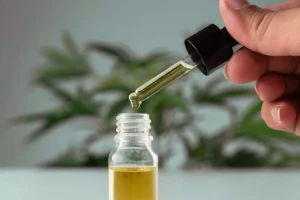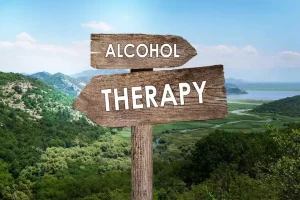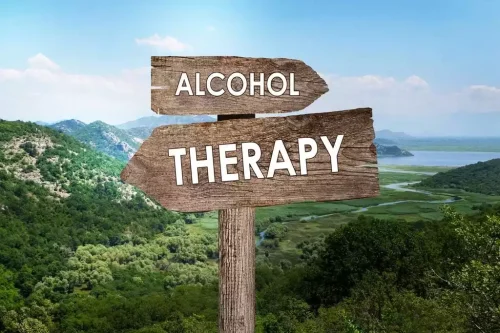
Scientists use this knowledge to develop effective prevention and treatment approaches that reduce the toll drug use takes on individuals, families, and communities. Addiction is surrounded by numerous myths and misconceptions that can hinder understanding and support for those affected. Many individuals hold beliefs about addiction that are misleading and prevent a compassionate approach to the issue.
Relapse Means the Person has Failed
When someone refers to quitting drugs or alcohol “cold turkey,” they mean they plan to quit abruptly without the help of medication or assistance from experienced medical personnel. Someone who chooses to address their addiction this way typically attempts to stop using drugs or alcohol at home by themselves. If you cannot sleep myths about addiction and recovery or function normally without drugs or alcohol in your system, you are addicted to a substance. Contrary to what some people believe, addiction is a very real physical dependence on a chemical. At Gateway Foundation, we prefer to use the term “medically supervised withdrawal.” “Detox” implies that once the substance you are addicted to leaves your body, all will be well. But the truth is, withdrawing from an addictive substance is only the first step in the process.
Myth #3: You can’t get addicted to marijuana or vaping.
This idea suggests that a person must experience severe negative consequences, such as losing their job, relationships, or health, before they will be motivated to seek help for their addiction. Stereotypes and misconceptions about addiction often lead people to believe that only certain types of individuals are susceptible to addiction. This myth perpetuates the idea that addiction only affects people of a particular race, socioeconomic background, or upbringing, creating a false sense of security for those who don’t fit the stereotype. Medications like the nicotine patch, invented in 1984 by researchers at UCLA, were the first widely used transdermal medication and have helped many people quit smoking.
Common myths about addiction
Substance use alters the brain’s reward system, affecting how an individual experiences pleasure and reward. When certain substances are consumed, they can lead to significant changes in neurotransmitter levels, most notably dopamine. Addiction is characterized by compulsive behavior despite the negative consequences. This behavior is not simply a matter of willpower; it often stems from a range of psychosocial influences and environmental triggers.
Free Healthbeat Signup
In many cases, the strain of managing addiction while maintaining the appearance of normalcy can exacerbate the problem and delay the decision to seek help. It’s important to recognize that setbacks are a natural part of the recovery process and do not negate the progress an individual has made. Embracing flexibility, patience, and perseverance can help individuals navigate the challenges of recovery and maintain their commitment to sobriety. The belief that addiction recovery follows a straightforward, linear path can lead to unrealistic expectations and disappointment when the journey inevitably encounters setbacks or challenges. Recovery from addiction is a lifelong process that often involves ups and downs, progress and setbacks, and periods of growth and struggle. The belief that an individual can overcome addiction through sheer willpower alone is both simplistic and misguided.
Myth 8: Person’s with an addiction are not capable of holding jobs or maintaining relationships

Some people believe that there is something inherently wrong with a person who struggles with addiction. The committee also heard about advances in addiction research from two keynote speakers, Drs. Avram Goldstein and Ivan Diamond, who shared valuable perspectives based on their extensive experience in this field (Appendixes C and D). Finally, to obtain a perspective on lessons learned, three speakers described how their fields had advanced and overcome the barriers posed by stigma.
myths about using Suboxone to treat opioid addiction
However, the truth is that the many people in abstinence only programs for opioid use https://ecosoberhouse.com/ disorder will relapse. Research shows that medication-based treatments are the most effective treatment. Opioid use disorder is a medical condition just like depression, diabetes or hypertension, and just like those conditions, it is most effectively treated with a combination of medication and counseling. Some people think that an opioid addiction is just psychological or a weakness of character, and that people who are addicted simply don’t have the willpower to stop.

Myth #7: Rehab is only for rich people.
- Today, polysubstance abuse—the use of three or more classes of substances—is the norm, not the exception.
- Genetics makes up about half the risk of addiction; environmental factors such as family life, upbringing, and peer influences make up the other half.
- During treatment, you will work with experienced behavioral health professionals to explore why you became addicted in the first place.
- You may have heard a few facts about addiction recovery along the way, but let’s separate fact from fiction.
- Studies show that socioeconomic status, education level, and race do not exclusively determine a person’s risk of developing an addiction.
Recognizing the need for professional help and personalized treatment plans is essential for increasing the chances of long-term recovery and reducing the risk of relapse. There is a prevailing stereotype that persons with an addiction are unable to function in society, hold down jobs, or maintain healthy relationships. This misconception paints a picture of persons with an addiction as dysfunctional and unproductive individuals, further perpetuating stigma and misunderstanding. Rather than viewing relapse as a failure, it’s important to recognize it as an opportunity to reevaluate and adjust one’s recovery plan. Developing effective relapse prevention strategies and having a strong support network can significantly reduce the risk of relapse and help individuals maintain long-term sobriety. In this article, I aim to debunk some of the most common and persistent myths surrounding addiction.

Today, thanks to science, our views and our responses to addiction and the broader spectrum of substance use disorders have changed dramatically. Groundbreaking discoveries about the brain have revolutionized our understanding of compulsive drug use, enabling us to respond effectively to the problem. In modern rehab centers, medication-assisted treatment is a common practice. To some, using prescription medication during addiction treatment might seem counterintuitive.

Debunking Myths About Addiction Recovery
Rather, it’s a signal to get back on track, either by going back to treatment or adjusting the treatment approach. Recovery can begin at any point in the addiction process—and the earlier, the better. If you or a loved one is struggling with drug or alcohol addiction treatment can help, don’t wait.

